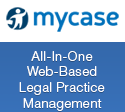Emotional Intelligence – The ‘X’ Factor For Success
We hide our leadership abilities ‘under a bushel basket’ because we may feel we have no concrete evidence to showcase our leadership skills. We fail to adequately value our own innate talents because we have been out of the legal ‘game’ for a long while. So, how do you find your competencies? This post will help you to do just that.





























